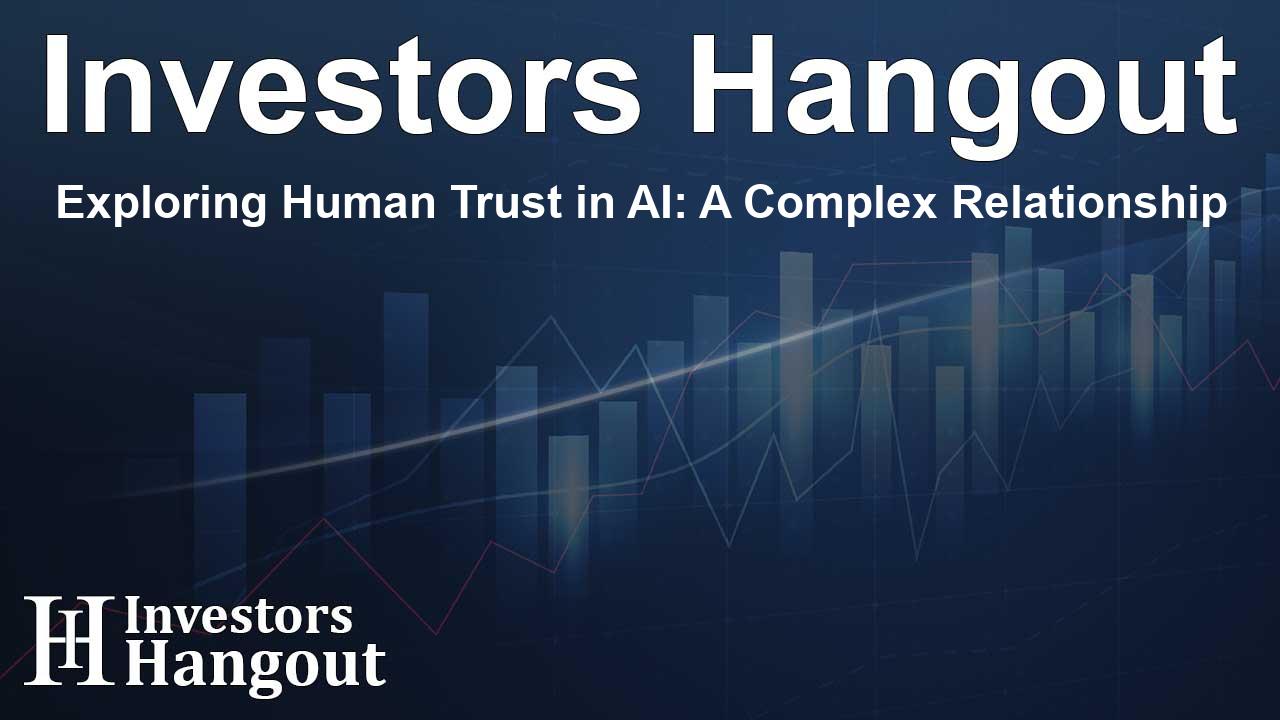Exploring Human Trust in AI: A Complex Relationship

Understanding the Relationship Between Humans and AI
Would people trust AI systems, especially in critical areas like medical diagnosis, even when they prove to be more accurate than human experts? This question lies at the heart of a fascinating study by researchers at the MIT Sloan School of Management, which delves into the complexities of human decision-making in the age of artificial intelligence.
The Paradox of AI Decision-Making
The MIT study investigates a puzzling paradox: while AI continuously demonstrates improved accuracy and efficiency, there remains a significant preference among individuals for human decision-makers. This phenomenon is particularly stark in contexts where immediate, personal judgments are crucial, such as healthcare. In contrast, people readily accept AI for tasks like stock trend forecasting, where human judgment is often less accurate.
Insights from the Research
The research paper titled AI Aversion or Appreciation? A Capability–Personalization Framework and a Meta-Analytic Review, published in Psychological Bulletin, outlines groundbreaking findings from a meta-analysis involving over 80,000 participants across 163 studies. The authors, including Jackson G. Lu and his colleagues, propose a compelling theory known as the Capability-Personalization Framework. This framework emphasizes two key dimensions that influence whether individuals prefer AI or human input.
First is the perceived capability of AI. If individuals perceive AI as having superior capabilities in a specific context, they are likely to trust it more. Second is the perceived necessity for personalization. When human touch is viewed as essential, AI adoption tends to wane.
Why Human Preference Matters
The results reveal that people often favor AI when it is deemed more capable, and personalization is unnecessary. However, if either condition falters, AI aversion can result. For example, in scenarios such as detecting skin cancer, patients frequently choose human doctors over AI, seeking a deeper understanding of their unique situations—a testament to the human need for personalization in medical decision-making.
Factors Influencing AI Preference
The analysis also identified various moderators affecting AI preferences. Interestingly, individuals showed greater appreciation for AI when its presence was tangible, such as in robotic forms serving in restaurants, compared to intangible algorithms. Furthermore, appreciation was more likely in contexts where outcomes were based on attitudes rather than actions, and in regions with lower unemployment rates. Conversely, AI aversion was more prevalent in countries with higher levels of education and internet usage.
Implications for AI Developers
As the researchers emphasize, understanding the psychological dynamics surrounding AI is equally crucial as refining the technology itself. Developers need to ensure that AI systems not only showcase high capability but also resonate with the psychological needs of users. Jackson G. Lu notes, "Maximizing AI’s potential means understanding when it’s welcome — and when it’s not.”
The Path Towards Meaningful Human-AI Collaboration
Moving forward, the path to fostering meaningful collaboration between humans and AI hinges on addressing both the technological capabilities and the personalization needs of users. The research illuminates a clear message: for AI technologies to be trusted and adopted more widely, developers must bridge the gap between technical prowess and the nuanced psychological landscape that defines human-AI interactions.
Frequently Asked Questions
What was the main focus of the MIT study?
The study explored the preference of individuals for human versus AI decision-making in various contexts, revealing insights about human aversion to AI despite its capabilities.
What is the Capability-Personalization Framework?
This framework posits that decisions to trust AI depend on its perceived capability in specific tasks and the necessity for personalization in those contexts.
Why do people prefer human doctors over AI in medical diagnoses?
Patients often feel that medical decisions require a personalized understanding of their unique circumstances, which they believe AI cannot provide.
How does physical tangibility affect AI acceptance?
People tend to appreciate AI more when it is presented in a tangible form, such as a physical robot, compared to when it operates as an invisible algorithm.
What should developers focus on to improve AI adoption?
Developers should aim to enhance both the technological capability of AI and its alignment with users’ psychological needs to foster broader acceptance and trust.
About The Author
Contact Addison Perry privately here. Or send an email with ATTN: Addison Perry as the subject to contact@investorshangout.com.
About Investors Hangout
Investors Hangout is a leading online stock forum for financial discussion and learning, offering a wide range of free tools and resources. It draws in traders of all levels, who exchange market knowledge, investigate trading tactics, and keep an eye on industry developments in real time. Featuring financial articles, stock message boards, quotes, charts, company profiles, and live news updates. Through cooperative learning and a wealth of informational resources, it helps users from novices creating their first portfolios to experts honing their techniques. Join Investors Hangout today: https://investorshangout.com/
The content of this article is based on factual, publicly available information and does not represent legal, financial, or investment advice. Investors Hangout does not offer financial advice, and the author is not a licensed financial advisor. Consult a qualified advisor before making any financial or investment decisions based on this article. This article should not be considered advice to purchase, sell, or hold any securities or other investments. If any of the material provided here is inaccurate, please contact us for corrections.
